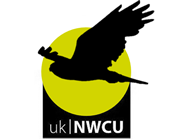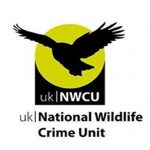 “A man has been arrested by officers from the NCA as part of an investigation into the alleged smuggling of endangered birds of prey.
“A man has been arrested by officers from the NCA as part of an investigation into the alleged smuggling of endangered birds of prey.
The 49-year-old was questioned following the search of a property in Stanford-le-Hope, Essex on Tuesday 8 October.
A number of dead birds, believed to be owls, were recovered from a freezer in the house and forensic analysis is now being carried out to find out how they were killed. Another 25 taxidermy birds were also seized.
The search was part of a joint investigation involving the NCA’s Border Policing Command, Border Force and the National Wildlife Crime Unit officers.
Senior investigating officer Ian Truby, from the NCA’s Border Policing Command, said:
“This joint investigation has so far identified around 150 endangered birds that we suspect have been sold without the correct trade certificates or export permits.
“Unregulated imports or exports of animals can harm the survival of rare species. That is why the law around moving them is so strict.
“Working with Border Force and the NWCU we will continue to target the international criminal trade in endangered species.”
The man, who was arrested on suspicion of trading in endangered species and evading restrictions contrary to the Customs and Excise Management Act 1979 and Control of Endangered Species (Enforcement) Regulations 1997, was later bailed pending further enquiries until 7th January 2014.
The NCA Border Investigation teams will be a visible crime-fighting presence at key ports and airports across the UK to tackle all types of crime 24/7.
CITES is the Convention on the International Trade in Endangered Species, an international treaty to which the UK is a signatory. CITES means strict controls are put in place on the trade of animal and plant material (including birds of prey) covered by the treaty.
Border Force has a well established and highly regarded specialist CITES Team based at Heathrow who provide advice on import and export procedures and deal with any illegal CITES goods. They work closely with the NCA, National Wildlife Crime Unit (NWCU) and police, and provide expert advice on border operational issues.”
Source: National Crime Agency
To read the full article, click HERE.




